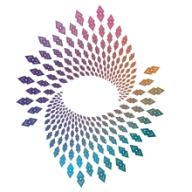Why You Need a Life Coach & What It Means to Have One | CTI
- POSTED ON MARCH 17, 2022

How many times have you tried a new career path, a new diet, or a new hobby, and yet nothing feels like it’s working out? Even though you’ve tried countless different options, you still end up feeling stuck. Almost everyone has experienced this frustrating feeling, regardless of their background, their current situation, or their goals.
If you’re asking yourself, “Why do I need a life coach?”, then this is precisely why — setting goals and staying accountable can be hard.
No matter what the particulars are of your life, the bottom line is that most individuals can experience the benefits of life coaching. In this post, we answer, “What is a life coach for?”, why do you want one, and what you can consider before choosing the best one for you.
What Is a Life Coach, and Why Do I Want One?
A life coach is someone who can help you see where your life is right now while also helping you create a vision of where you want it to go and a plan to get there. Throughout the process, a personal life coach will not only help guide you, but they will provide you with the support you need throughout this journey. What does a life coach do? In short: what the client needs.
Unlike many other professions, life coaching is not regulated. That’s why it’s so important to do some research to find your ideal coach. At the Co-Active Training Institute, we give our life coaches access to professional training with access to a certification program that has met stringent experience and education requirements. Our coaches demonstrate not only that they have a thorough understanding of the coaching competencies, but also that they adhere to strict ethical guidelines to protect the individuals they coach. If you are still grappling with the answers to the question “Why do I need a life coach?”, let us help you understand better what they can and cannot do.
What Does a Life Coach Do?
Life coaches are not therapists. Their primary focus is on helping you with your future plans, personal growth, and finding ways you can fulfill your goals.
- New opportunities: Whether it’s a new job or a big move, changes in your life can be a happy time yet still be incredibly stressful. A life coach can walk you through these new transitions so that you not only feel confident with your decisions, but you can also see what else you can do with these changes so you can accomplish more than you had planned.
- Nothing is happening: Maybe the goals you set for yourself are just not coming to fruition, no matter how much you try. A life coach is great for this situation because they can help you re-evaluate your attitude and show you what you need to change to get things moving in your life.
- The stuck feeling: Sometimes, you may feel you are blocked from accomplishing your goals. No matter how many different things you try, you always feel like you are out of options, defeated, and confused. A life coach can help with this stuck feeling and help clear up those painful beliefs that you keep telling yourself. Through their sessions, you will be able to get clear of what you want and what you need to do to feel fulfilled.
What Can a Life Coach NOT Help You With
Another answer to the question “Why do I need a life coach?” is the fact that a life coach can add a lot of value to your life. However, in certain situations, personal life coaching may not be what you need.
- Past traumas: If you are grappling with past issues or need to work through some trauma, then a life coach will not be able to help you with these difficult problems.
- Mental illness: What is a life coach not? A mental health professional. If you struggle with mental illness, a therapist may be better equipped to help you. Unlike life coaching sessions, they can provide you with the support (such as prescription medicine, cognitive behavioral therapy, or other therapies) you need to address your specific issue. A life coach is not a psychologist or psychiatric professional.
- Needing a friend: A life coach is here to present you with an action plan and structure to help guide your life decisions so you can achieve your goals. Friends can be a great support system, but if you’re looking for someone to provide you with their opinions, suggestions or advice, then a life coach may not be for you.
Even though life coaches and therapists use similar techniques, a life coach is better suited to help you achieve your vision for the future and ask deep and meaningful questions to help you figure out what you truly want out of your life.
Questions to Ask a Life Coach
Before you head into your first life coach session, it is a good idea to be prepared. Often, coaches will provide you with a list of questions to fill out before your session so that they can have a basic understanding of who you are. This concept should work both ways. Having a list of questions you want to ask your life coach can make your session more rewarding and provide you with the information you need to make you feel more confident in your session. There are countless questions that you can ask your life coach. Here are some to consider:
- What specific areas do you focus on? Finding a life coach who specializes in the specific area you want guidance in can be helpful. Not only will they have extensive experience in this area, but they may have helpful insights to guide your sessions. For instance, some life coaches focus on executive and leadership development, whereas others are more focused on personal growth, personal development, and relationships.
- How much experience do you have with coaching? If you are looking for a skillful coach, then finding someone who has at least 100 hours of professional coach training and experience may be the most beneficial.
- What led up to you deciding to become a life coach? This is a great question to help you build chemistry and connection with the coach and to determine if there’s a good fit.
- What has been the most rewarding aspect of coaching? This question will help you learn about their dedication and authenticity. You will also get a sense of their approach.
- What do you like about your clients? What frustrates you the most about your clients? This question can help reveal the coach’s personality. You’ll be able to determine their level of compassion, courage, patience, and understanding.
Transform Your Life With a Co-Active Coach
So, to your question, “Why do I need a life coach?”: What it boils down to is a life coach can help you get clear on what you want, help you identify what’s getting in your way, and get you to create a roadmap to align with where you want to go. If you want to feel more empowered and fulfilled in your life, then contact a Co-Active coach today to find your own Certified Professional Co-Active Coach (CPCC). We are here to get you outside your comfort zone so you can tap into your own powerful wisdom that will launch you into living your best life.





